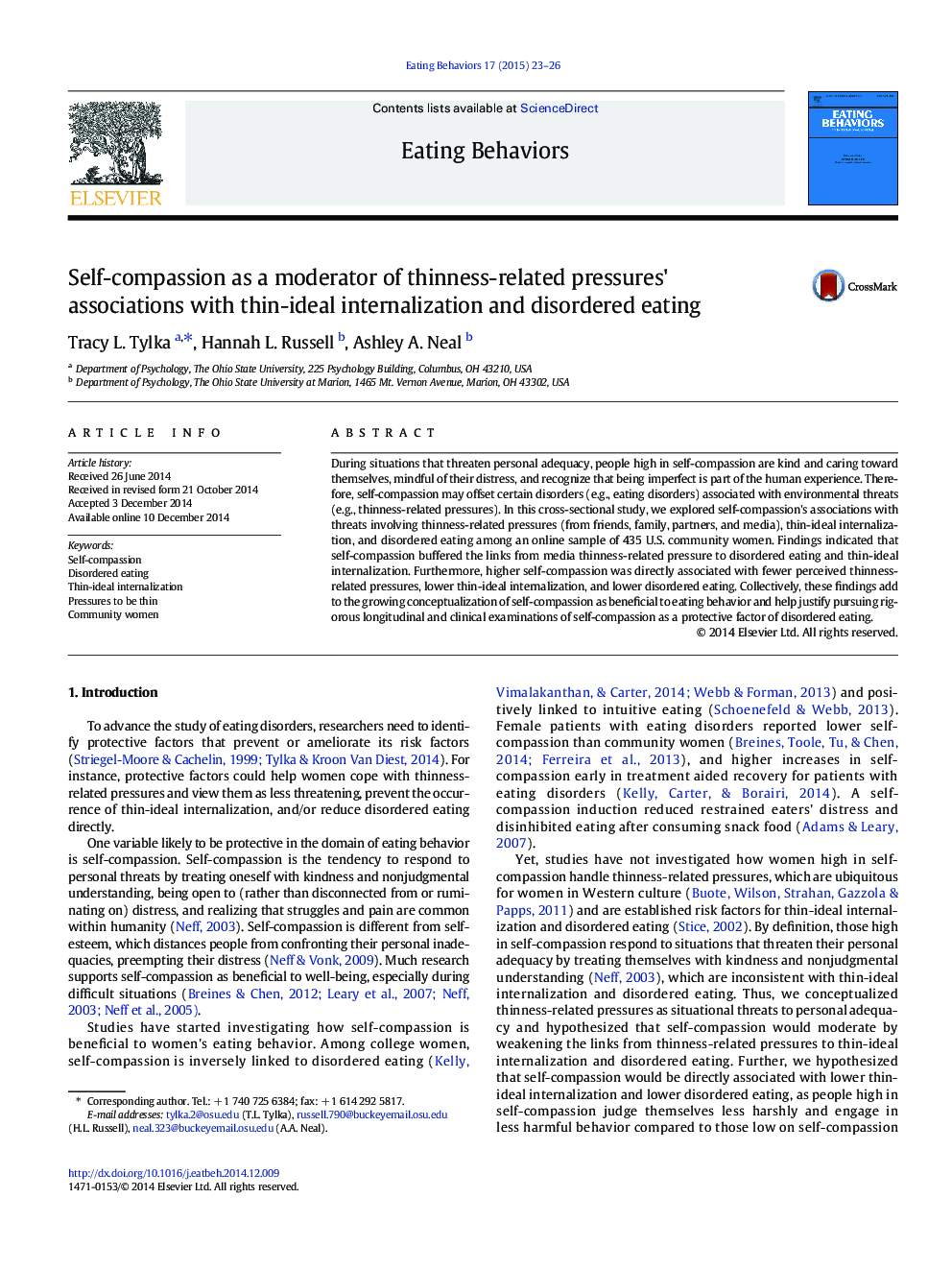| Article ID | Journal | Published Year | Pages | File Type |
|---|---|---|---|---|
| 7265233 | Eating Behaviors | 2015 | 4 Pages |
Abstract
During situations that threaten personal adequacy, people high in self-compassion are kind and caring toward themselves, mindful of their distress, and recognize that being imperfect is part of the human experience. Therefore, self-compassion may offset certain disorders (e.g., eating disorders) associated with environmental threats (e.g., thinness-related pressures). In this cross-sectional study, we explored self-compassion's associations with threats involving thinness-related pressures (from friends, family, partners, and media), thin-ideal internalization, and disordered eating among an online sample of 435 U.S. community women. Findings indicated that self-compassion buffered the links from media thinness-related pressure to disordered eating and thin-ideal internalization. Furthermore, higher self-compassion was directly associated with fewer perceived thinness-related pressures, lower thin-ideal internalization, and lower disordered eating. Collectively, these findings add to the growing conceptualization of self-compassion as beneficial to eating behavior and help justify pursuing rigorous longitudinal and clinical examinations of self-compassion as a protective factor of disordered eating.
Related Topics
Life Sciences
Neuroscience
Behavioral Neuroscience
Authors
Tracy L. Tylka, Hannah L. Russell, Ashley A. Neal,
